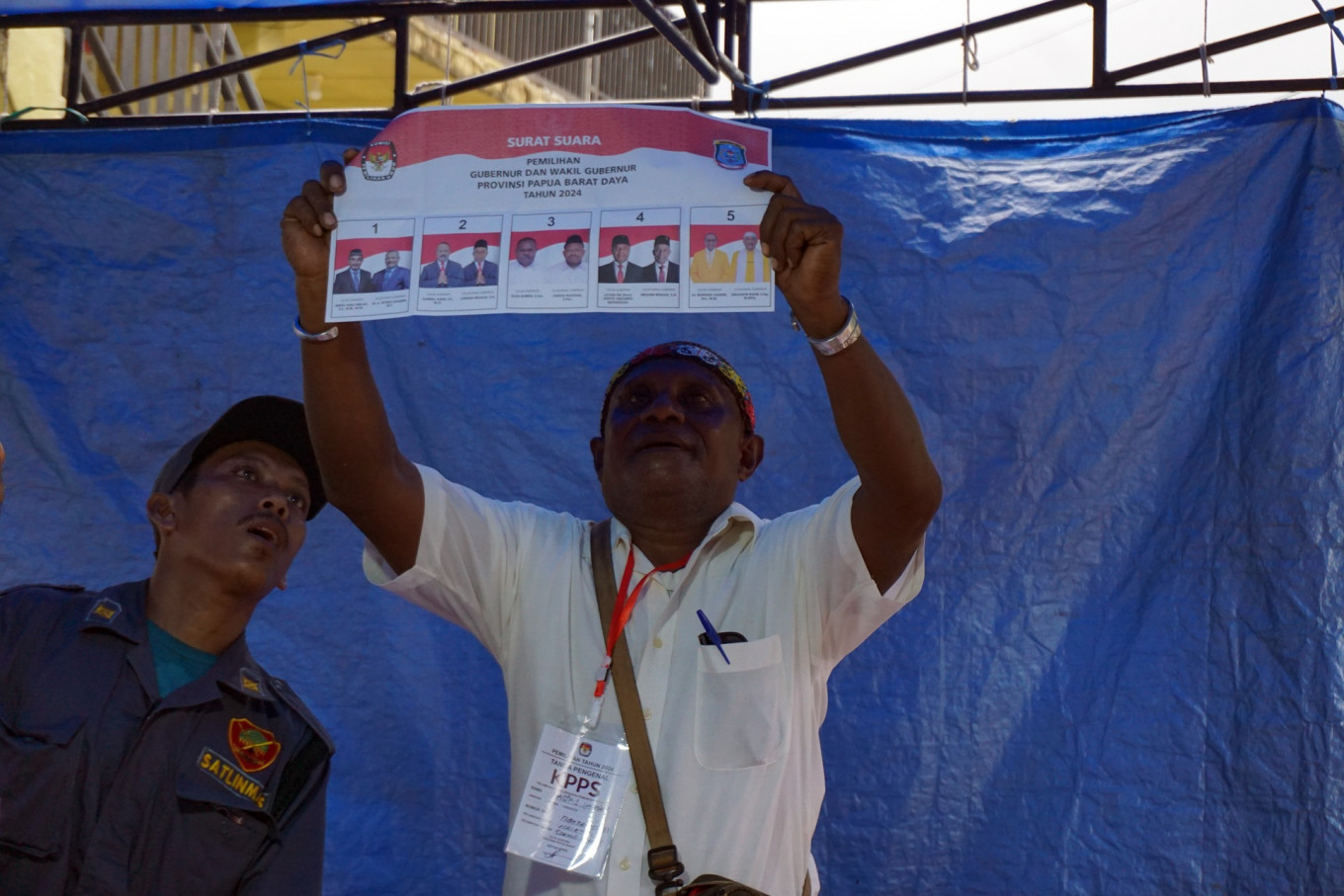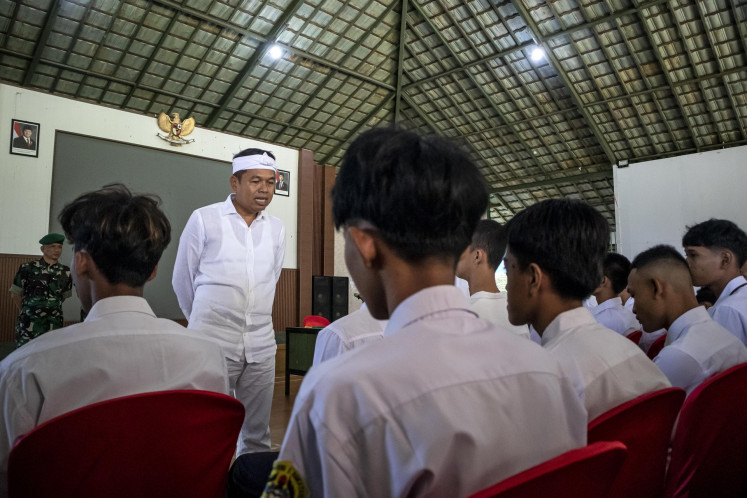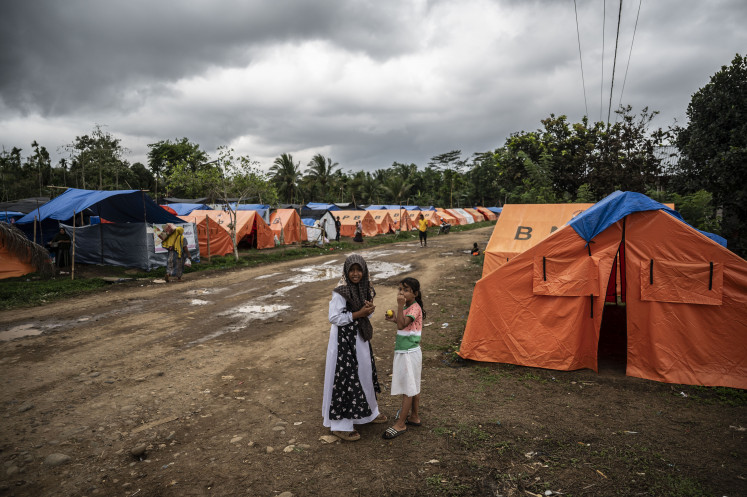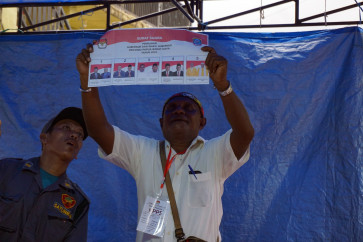Popular Reads
Top Results
Can't find what you're looking for?
View all search resultsPopular Reads
Top Results
Can't find what you're looking for?
View all search resultsMillions cast votes from new regions, others from behind bars
The competition between the ruling Onward Indonesia Coalition (KIM) and the Indonesian Democratic Party of Struggle (PDI-P) did not elude Indonesia’s new Papuan provinces of South Papua, Central Papua, the Papua Highlands and Southwest Papua.
Change text size
Gift Premium Articles
to Anyone
 A poll administrator counts votes for the Southwest Papua gubernatorial election at a polling station in Sorong, Southwest Papua, on Nov. 27, 2024. Poll workers at 380 polling stations across Sorong tallied votes for the first Southwest Papua gubernatorial election, as well as the Sorong mayoral election, after the polls closed at 1 p.m. local time on Nov. 27, 2024. (Antara/Olha Mulalinda)
A poll administrator counts votes for the Southwest Papua gubernatorial election at a polling station in Sorong, Southwest Papua, on Nov. 27, 2024. Poll workers at 380 polling stations across Sorong tallied votes for the first Southwest Papua gubernatorial election, as well as the Sorong mayoral election, after the polls closed at 1 p.m. local time on Nov. 27, 2024. (Antara/Olha Mulalinda)

While most eyes were fixed on the few top battlegrounds for this year’s simultaneous regional elections, millions of voters outside of those areas cast their ballots on Wednesday, including those in newly established provinces, making their voices heard in races no less heated than the most closely watched contests.
The competition between the ruling Onward Indonesia Coalition (KIM) and the Indonesian Democratic Party of Struggle (PDI-P) did not elude Indonesia’s new Papuan provinces of South Papua, Central Papua, the Papua Highlands and Southwest Papua.
Four candidate pairs were competing in Central Papua, where over 1.1 million people were registered to vote. The contenders, backed by different combinations of the country’s largest political parties, battled for votes under the region’s unique noken system.
Two noken practices were employed during the elections. One, commonly called big man noken, involves a community delegating their votes to a single representative after rounds of deliberation.
The other practice, known as hung noken, uses a traditional Papuan noken bag, from which the name of the voting system is derived, as a substitute for a ballot box.
Each candidate gets a noken that is openly displayed in the community during the voting period. This system is practiced because of the area’s difficult terrain, which makes delivering ballots and other voting supplies challenging.

Acting Central Papua governor Anwar Harun Damanik said votes and endorsements from community leaders, traditional figures, as well as young and female voters were key to winning the province.

















